Go offline with the Player FM app!
Joni Mitchell on Illusions
Manage episode 201545312 series 2140572
Interview by Joe Smith
Joni Mitchell was interviewed on November 3, 1986. Joe was writing Off the Record–his oral history of rock and roll.
The Animated Transcript

Joe Smith was a longtime record executive and one-time radio DJ. From 1986-88, he interviewed more than 240 music artists and executives to write Off the Record. Then in 2012, he donated more than 230 hours of interviews on cassette tapes to the Library of Congress.
People were very protective of me. Overly so. I was in the industry for a long time before I had any idea of what drugs people were doing. I mean, I just said, “Jeez, looking awful skinny. Why doesn’t he have an appetite.” I was very very sheltered when I first entered into it. I was young for my age. Not as naïve as they expected. I don’t know why I seem to bring that out in people.
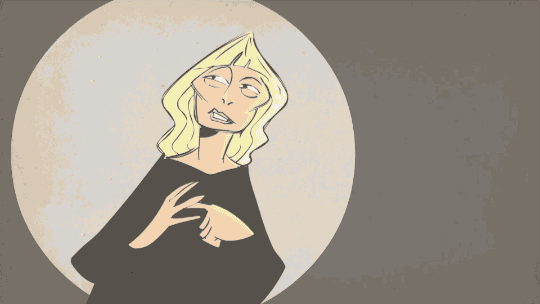
Yeah, I like my freedom. I like to do my own grocery shopping. People do recognize you. They are kind of shocked. Some people like it. It makes them feel at ease. It confirms their hopes that you are in fact similar to them. Some people can’t stand it. One time I sat down, we had good tickets on the floor at some rock concert. We moved in, we got there late. The fellow sitting next to me said, “You can’t sit here.” I said, “Why not? I’ve got tickets.” “But you’re Joni Mitchell.” I said, “So?” He said, “You shouldn’t be sitting there. You should be backstage, or you should be up in that box.” He was very annoyed. Some people are upset to see you doing ordinary things. Those people, if they were a celebrity, they would have an entourage. You know if you see yourself as a kingly type, then you need your serfs and your army and someone around you.
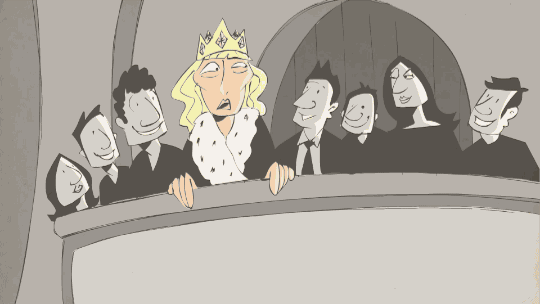
I like to move around. I travel. I’ve driven across country by myself. When I felt that fame, people were nosing me out, well I moved on. I used traveling names. Wigs, if necessary. I didn’t think I had much of a following in the south. I thought I was anonymous down there so I kept to the south. I found in certain pockets that I was quite recognizable, and I just hit a wig store.
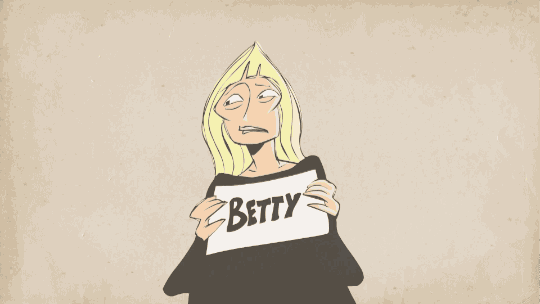
At that time I was pretty much a. “Good Time Charlie.” I was a bad student in the school system. I failed the 12th grade. I had done my book reports from classic comics!
Oh really? (laughs)

I was anti-intellectual to the nth. Basically I liked to dance and paint, and that was about it. As far as serious discussions went, at that time most of them were overtly pseudo-intellectual and boring to see teenagers sitting around solving the problems of the world. I thought, “All things considered, I’d rather be dancing.” (laughs)

I liked playing in small clubs. I really liked holding the attention of thirty or forty people. I never liked the roar of the big crowd. I didn’t like the sound of people gasping at the mere mention of my name. It horrified me.
Also for a lot of reasons, because I knew people were fickle, I knew that they were buying an illusion. I didn’t want there to be such a gulf between who I presented and who I was. As Geffen pointed out, he said, “You’re the only star I ever met that wanted to be ordinary.” I never really wanted to be a star. I didn’t like entering a room with all eyes on me. I still don’t really like the attention of a birthday party. I prefer Christmas, which is everybody’s holiday. It’s just my nature. I don’t like to be that zeroed in on en masse. Over the years I’ve adjusted to it. Now I’m the other way around. You can give me 400,000 hostile people and I won’t even break sweat. If you give me 200 adoring people, my mouth will dry out. (laughs)
I don’t know how to sell out. If I tried to sell out I don’t think I could. By that I mean to make an attempt to make a commercial record. I just make them and I think if I was a kid I would like this song. So you have to have a certain amount of grab-ability, initially, and then something that wears well, that you’ll love for years to come. That’s what anything fine is. It’s recognized in painting. It’s not recognized … I’m just working in a toss-away industry. I’m a fine artist working in a commercial arena, so that’s my cross to bear.
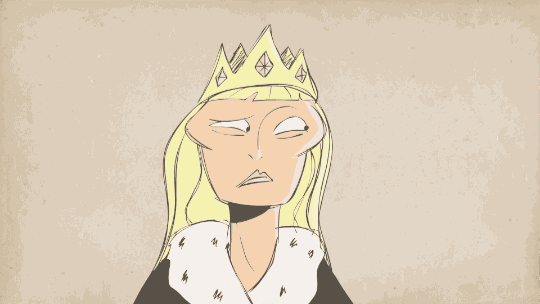
I have lost my credibility as a hit maker because of these side excursions into other branches of music by not being consistent. Consistency seems to be all important.
What do you regret?
Oh I would do the same thing in a minute.
[crosstalk] never a minute of regret for that. You’ve been there.
Are you kidding? Oh I don’t. No, I have no regret.
Have you accepted the fact that you don’t sell more? Does it make you angry or frustrated?
What I’m telling you is no it doesn’t make me angry. It makes me curious: Why?
Do you ever get periods where nothing comes when you’re writing? Are there dry periods there, or are you prolific enough to keep writing?
Well, musically, I would never run dry. Any time I sit down to an instrument, I could write a song. I try not to steal from myself, but the modalities create similarities. Musically, I don’t think I’d ever dry up. I trust my musical invention. Lyrics are hard.
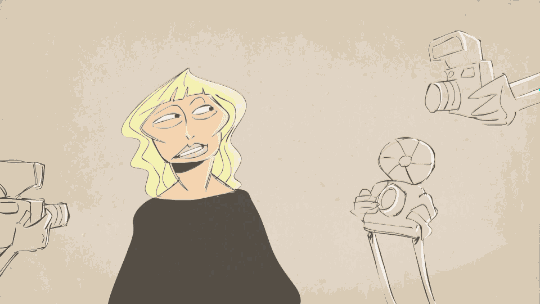

The full interview
Bonus Interview Outtakes
Joni Mitchell on Living in SoHo
“I got in before SoHo was SoHo. It was just Little Italy when I was in there. It’s still off the touristy track. It’s just away from the Saturday action, the crowds and everything. It’s too expensive. It’s insane. You’ve got to be a billionaire to live on Manhattan now.”
Finding Her Voice
“When I was 19 I went to art school. I had six months of teaching myself to play baritone ukulele under my belt, so was sort of a novice folkie. … I was singing folk songs at that time. At that time I was a folk singer. … Then I went to Toronto to see the Mariposa Folk Festival, actually to see Buffy Sainte-Marie. I still didn’t have an image of myself as a musician. I found I couldn’t work and I didn’t have enough money to get in the union, $160, I didn’t have it. I worked in women’s wear. I worked in a department store and I could barely make ends meet. I finally found a scab club in Toronto that allowed me to play. I played there for a couple of months. Then I married Chuck Mitchell and I moved across the border. We still were scrambling to work. As a couple, we were making $15 a night. There were clubs that were very cliquish that we couldn’t get into. In Detroit, we had a fifth floor walkup apartment and it had some extra rooms. When Eric Anderson and David Blue and Tom Rush, and people passed through Detroit, we billeted them there. Bruce Langhorne, they used to stay with us. Eric taught me a couple of open tunings. He taught me Open G and Drop D Modal tuning. Once I got the open tunings for some reason, I began to get the harmonic sophistication that I heard that my musical fountain inside was excited by. Once I got some interesting chords to play with, my writing began to come.”
Learning to Write
“My husband had an education. He had a degree in Literature. I married into a camp of literary types. They, not they so much, but Chuck in particular really didn’t believe that you could write unless you read a lot. Considering me an illiterate, he didn’t give me a great deal of encouragement regarding my writing, but Tom Rush did. Tom would come through and say, “Do you have any new songs?” I’d play him a batch of them. He’s say, “Any more?” I’d say, “There’s one more.” I always would hold one out for some reason thinking it was too sensitive, too feminine for him. That would always be the one he’d choose. He chose “Urge for Going”, he chose “Circle Game.” Where he traveled and played those songs, clubs opened up to me. Because the song was my introduction to that club work. I was playing as far south as Florida. I played in Fort Bragg, which is interesting, to gung-ho soldiers while everybody I knew was burning their draft cards and claiming homosexuality and everything and anything they could to get out of the draft. I played in Charleston, which was to the Navy, and to these women from Savannah, who were the worst audience in the world. They talked all the way through your set because if the boyfriend gave you a moment of attention, they couldn’t stand it. It would always be the buzz of women in Charleston.”
Being Categorized
“I did read my press. For the most part I found that initially they always lumped me in with the women. Whereas in fact what I was doing was not what most of the women were doing. My peer group was really Phil Ochs, and Dylan, and Eric, and David Blue. Basically that was my peer group. They had me lumped in with Judy Collins, who didn’t really write at that time, and Baez. Mainly that I was a woman with an acoustic guitar. … Then they lumped me in with Janis and Carly.”
Bad Reviews
“It bothers me on this level because it’s chain reaction. That people, a certain amount of the populous are sheep, and if a critic lambastes you, unfortunately even though he’s a shoddy little writer to begin with, underpaid, jealous to boot, has an ax to grind. That his word can influence a certain amount of people who can’t think for themselves. Plus, these reviews do tend to get accumulative. They tend to get regurgitated. Lazy reviewers look up other people’s reviews and they write the same thing, so you get people writing crap based on crap.”
Joni’s Timeless Style
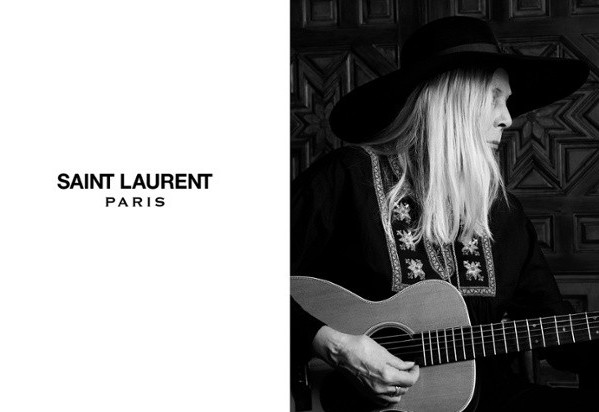
She had “it,” said Hedi Slimane, head designer at Saint Laurent, who named Joni one of his muses.
Joni appeared as one of the faces of the fashion house’s ad campaign and she also landed on the cover of New York Magazine’s Spring 2015 fashion issue, proving that some styles are timeless. Read Joni’s awesome interview with in that issue.
Joni’s Self-Portraits
“I have always thought of myself as a painter derailed by circumstance.” Check out her paintings.

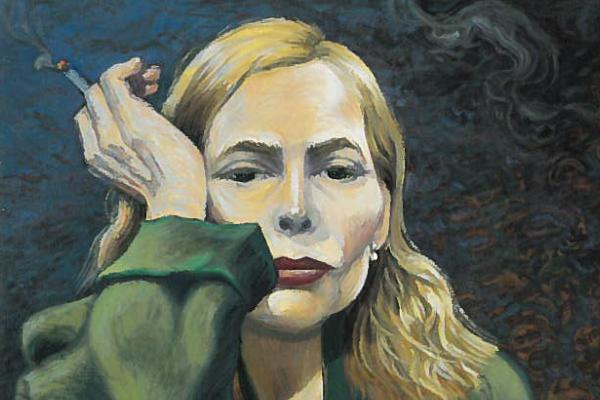
Joni’s Health
On March 31, 2015 Joni was found unconscious in her home in LA and rushed to the hospital. Original reports that was in a coma were dismissed by her reps:
“Contrary to rumors circulating on the Internet today, Joni is not in a coma. Joni is still in the hospital – but she comprehends, she’s alert, and she has her full senses. A full recovery is expected.”
Joni has made several health problems during her life — polio and its neurological effects, scarlet fever, dengue — and has said in the past that she suffers from Morgellons disease, a mysterious skin condition that manifests in sores and fiber-like growths. Here’s how she described the disease to New York Magazine:
“Fibers in a variety of colors protrude out of my skin like mushrooms after a rainstorm. They cannot be forensically identified as animal, vegetable, or mineral.”
Information surrounding the disorder is hazy, as it is not yet a widely accepted diagnosis. Some medical experts believe that it is in fact a psychosomatic illness.
The Laurel Canyon Scene
In the 60’s and 70’s, Laurel Canyon – a neighborhood of winding streets tucked into the Hollywood Hills off Sunset Boulevard in LA – was the center of the musical universe. It was where stars like Joni, Neil Young, David Crosby, and John and Michelle Phillips all lived, played, and made music.
The music that came out of those hills even became known as the “Laurel Canyon sound” – folksy, melodic, and tuned in to the political and cultural leanings of the time.
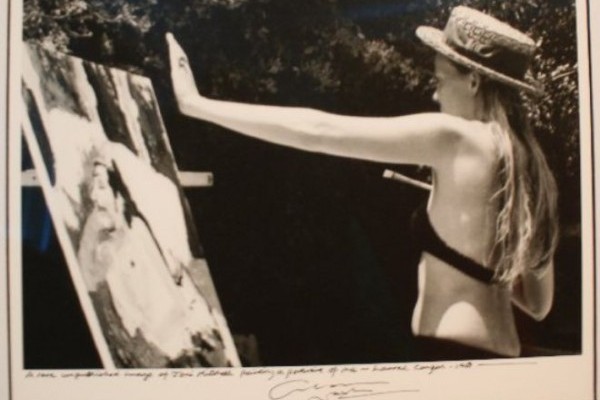
Credit: jonimitchell.com
See what Joni’s life was like at Laurel Canyon
“When I first came out to L.A. [in 1968], my friend [photographer] Joel Bernstein found an old book in a flea market that said: Ask anyone in America where the craziest people live and they’ll tell you California. Ask anyone in California where the craziest people live and they’ll say Los Angeles. Ask anyone in Los Angeles where the craziest people live and they’ll tell you Hollywood. Ask anyone in Hollywood where the craziest people live and they’ll say Laurel Canyon. And ask anyone in Laurel Canyon where the craziest people live and they’ll say Lookout Mountain. So I bought a house on Lookout Mountain.”
“Our House”
Graham Nash wrote the classic Crosby, Stills, Nash and Young song about life at Joni’s house in Laurel Canyon.
I’ll light the fire, you place the flowers in the vase that you bought today.
Staring at the fire for hours and hours while I listen to you
Play your love songs all night long for me, only for me.
CREDITS
Executive Producer
David Gerlach
Animator
Patrick Smith
Series Producer
Amy Drozdowska
Colorist
Diana Tantillo
MUSIC
Joni Mitchell
“Urge For Going”
“Both Sides Now”
via APM
Ken Anderson and Rebecca Ruth Hall “November Song”
Rick Ruskin “King James Position”
Vasco “Love In An Air Baloon”
Silvain Vanot “Lullaby In Blue”
61 episodes
Manage episode 201545312 series 2140572
Interview by Joe Smith
Joni Mitchell was interviewed on November 3, 1986. Joe was writing Off the Record–his oral history of rock and roll.
The Animated Transcript

Joe Smith was a longtime record executive and one-time radio DJ. From 1986-88, he interviewed more than 240 music artists and executives to write Off the Record. Then in 2012, he donated more than 230 hours of interviews on cassette tapes to the Library of Congress.
People were very protective of me. Overly so. I was in the industry for a long time before I had any idea of what drugs people were doing. I mean, I just said, “Jeez, looking awful skinny. Why doesn’t he have an appetite.” I was very very sheltered when I first entered into it. I was young for my age. Not as naïve as they expected. I don’t know why I seem to bring that out in people.

Yeah, I like my freedom. I like to do my own grocery shopping. People do recognize you. They are kind of shocked. Some people like it. It makes them feel at ease. It confirms their hopes that you are in fact similar to them. Some people can’t stand it. One time I sat down, we had good tickets on the floor at some rock concert. We moved in, we got there late. The fellow sitting next to me said, “You can’t sit here.” I said, “Why not? I’ve got tickets.” “But you’re Joni Mitchell.” I said, “So?” He said, “You shouldn’t be sitting there. You should be backstage, or you should be up in that box.” He was very annoyed. Some people are upset to see you doing ordinary things. Those people, if they were a celebrity, they would have an entourage. You know if you see yourself as a kingly type, then you need your serfs and your army and someone around you.

I like to move around. I travel. I’ve driven across country by myself. When I felt that fame, people were nosing me out, well I moved on. I used traveling names. Wigs, if necessary. I didn’t think I had much of a following in the south. I thought I was anonymous down there so I kept to the south. I found in certain pockets that I was quite recognizable, and I just hit a wig store.

At that time I was pretty much a. “Good Time Charlie.” I was a bad student in the school system. I failed the 12th grade. I had done my book reports from classic comics!
Oh really? (laughs)

I was anti-intellectual to the nth. Basically I liked to dance and paint, and that was about it. As far as serious discussions went, at that time most of them were overtly pseudo-intellectual and boring to see teenagers sitting around solving the problems of the world. I thought, “All things considered, I’d rather be dancing.” (laughs)

I liked playing in small clubs. I really liked holding the attention of thirty or forty people. I never liked the roar of the big crowd. I didn’t like the sound of people gasping at the mere mention of my name. It horrified me.
Also for a lot of reasons, because I knew people were fickle, I knew that they were buying an illusion. I didn’t want there to be such a gulf between who I presented and who I was. As Geffen pointed out, he said, “You’re the only star I ever met that wanted to be ordinary.” I never really wanted to be a star. I didn’t like entering a room with all eyes on me. I still don’t really like the attention of a birthday party. I prefer Christmas, which is everybody’s holiday. It’s just my nature. I don’t like to be that zeroed in on en masse. Over the years I’ve adjusted to it. Now I’m the other way around. You can give me 400,000 hostile people and I won’t even break sweat. If you give me 200 adoring people, my mouth will dry out. (laughs)
I don’t know how to sell out. If I tried to sell out I don’t think I could. By that I mean to make an attempt to make a commercial record. I just make them and I think if I was a kid I would like this song. So you have to have a certain amount of grab-ability, initially, and then something that wears well, that you’ll love for years to come. That’s what anything fine is. It’s recognized in painting. It’s not recognized … I’m just working in a toss-away industry. I’m a fine artist working in a commercial arena, so that’s my cross to bear.

I have lost my credibility as a hit maker because of these side excursions into other branches of music by not being consistent. Consistency seems to be all important.
What do you regret?
Oh I would do the same thing in a minute.
[crosstalk] never a minute of regret for that. You’ve been there.
Are you kidding? Oh I don’t. No, I have no regret.
Have you accepted the fact that you don’t sell more? Does it make you angry or frustrated?
What I’m telling you is no it doesn’t make me angry. It makes me curious: Why?
Do you ever get periods where nothing comes when you’re writing? Are there dry periods there, or are you prolific enough to keep writing?
Well, musically, I would never run dry. Any time I sit down to an instrument, I could write a song. I try not to steal from myself, but the modalities create similarities. Musically, I don’t think I’d ever dry up. I trust my musical invention. Lyrics are hard.


The full interview
Bonus Interview Outtakes
Joni Mitchell on Living in SoHo
“I got in before SoHo was SoHo. It was just Little Italy when I was in there. It’s still off the touristy track. It’s just away from the Saturday action, the crowds and everything. It’s too expensive. It’s insane. You’ve got to be a billionaire to live on Manhattan now.”
Finding Her Voice
“When I was 19 I went to art school. I had six months of teaching myself to play baritone ukulele under my belt, so was sort of a novice folkie. … I was singing folk songs at that time. At that time I was a folk singer. … Then I went to Toronto to see the Mariposa Folk Festival, actually to see Buffy Sainte-Marie. I still didn’t have an image of myself as a musician. I found I couldn’t work and I didn’t have enough money to get in the union, $160, I didn’t have it. I worked in women’s wear. I worked in a department store and I could barely make ends meet. I finally found a scab club in Toronto that allowed me to play. I played there for a couple of months. Then I married Chuck Mitchell and I moved across the border. We still were scrambling to work. As a couple, we were making $15 a night. There were clubs that were very cliquish that we couldn’t get into. In Detroit, we had a fifth floor walkup apartment and it had some extra rooms. When Eric Anderson and David Blue and Tom Rush, and people passed through Detroit, we billeted them there. Bruce Langhorne, they used to stay with us. Eric taught me a couple of open tunings. He taught me Open G and Drop D Modal tuning. Once I got the open tunings for some reason, I began to get the harmonic sophistication that I heard that my musical fountain inside was excited by. Once I got some interesting chords to play with, my writing began to come.”
Learning to Write
“My husband had an education. He had a degree in Literature. I married into a camp of literary types. They, not they so much, but Chuck in particular really didn’t believe that you could write unless you read a lot. Considering me an illiterate, he didn’t give me a great deal of encouragement regarding my writing, but Tom Rush did. Tom would come through and say, “Do you have any new songs?” I’d play him a batch of them. He’s say, “Any more?” I’d say, “There’s one more.” I always would hold one out for some reason thinking it was too sensitive, too feminine for him. That would always be the one he’d choose. He chose “Urge for Going”, he chose “Circle Game.” Where he traveled and played those songs, clubs opened up to me. Because the song was my introduction to that club work. I was playing as far south as Florida. I played in Fort Bragg, which is interesting, to gung-ho soldiers while everybody I knew was burning their draft cards and claiming homosexuality and everything and anything they could to get out of the draft. I played in Charleston, which was to the Navy, and to these women from Savannah, who were the worst audience in the world. They talked all the way through your set because if the boyfriend gave you a moment of attention, they couldn’t stand it. It would always be the buzz of women in Charleston.”
Being Categorized
“I did read my press. For the most part I found that initially they always lumped me in with the women. Whereas in fact what I was doing was not what most of the women were doing. My peer group was really Phil Ochs, and Dylan, and Eric, and David Blue. Basically that was my peer group. They had me lumped in with Judy Collins, who didn’t really write at that time, and Baez. Mainly that I was a woman with an acoustic guitar. … Then they lumped me in with Janis and Carly.”
Bad Reviews
“It bothers me on this level because it’s chain reaction. That people, a certain amount of the populous are sheep, and if a critic lambastes you, unfortunately even though he’s a shoddy little writer to begin with, underpaid, jealous to boot, has an ax to grind. That his word can influence a certain amount of people who can’t think for themselves. Plus, these reviews do tend to get accumulative. They tend to get regurgitated. Lazy reviewers look up other people’s reviews and they write the same thing, so you get people writing crap based on crap.”
Joni’s Timeless Style

She had “it,” said Hedi Slimane, head designer at Saint Laurent, who named Joni one of his muses.
Joni appeared as one of the faces of the fashion house’s ad campaign and she also landed on the cover of New York Magazine’s Spring 2015 fashion issue, proving that some styles are timeless. Read Joni’s awesome interview with in that issue.
Joni’s Self-Portraits
“I have always thought of myself as a painter derailed by circumstance.” Check out her paintings.


Joni’s Health
On March 31, 2015 Joni was found unconscious in her home in LA and rushed to the hospital. Original reports that was in a coma were dismissed by her reps:
“Contrary to rumors circulating on the Internet today, Joni is not in a coma. Joni is still in the hospital – but she comprehends, she’s alert, and she has her full senses. A full recovery is expected.”
Joni has made several health problems during her life — polio and its neurological effects, scarlet fever, dengue — and has said in the past that she suffers from Morgellons disease, a mysterious skin condition that manifests in sores and fiber-like growths. Here’s how she described the disease to New York Magazine:
“Fibers in a variety of colors protrude out of my skin like mushrooms after a rainstorm. They cannot be forensically identified as animal, vegetable, or mineral.”
Information surrounding the disorder is hazy, as it is not yet a widely accepted diagnosis. Some medical experts believe that it is in fact a psychosomatic illness.
The Laurel Canyon Scene
In the 60’s and 70’s, Laurel Canyon – a neighborhood of winding streets tucked into the Hollywood Hills off Sunset Boulevard in LA – was the center of the musical universe. It was where stars like Joni, Neil Young, David Crosby, and John and Michelle Phillips all lived, played, and made music.
The music that came out of those hills even became known as the “Laurel Canyon sound” – folksy, melodic, and tuned in to the political and cultural leanings of the time.

Credit: jonimitchell.com
See what Joni’s life was like at Laurel Canyon
“When I first came out to L.A. [in 1968], my friend [photographer] Joel Bernstein found an old book in a flea market that said: Ask anyone in America where the craziest people live and they’ll tell you California. Ask anyone in California where the craziest people live and they’ll say Los Angeles. Ask anyone in Los Angeles where the craziest people live and they’ll tell you Hollywood. Ask anyone in Hollywood where the craziest people live and they’ll say Laurel Canyon. And ask anyone in Laurel Canyon where the craziest people live and they’ll say Lookout Mountain. So I bought a house on Lookout Mountain.”
“Our House”
Graham Nash wrote the classic Crosby, Stills, Nash and Young song about life at Joni’s house in Laurel Canyon.
I’ll light the fire, you place the flowers in the vase that you bought today.
Staring at the fire for hours and hours while I listen to you
Play your love songs all night long for me, only for me.
CREDITS
Executive Producer
David Gerlach
Animator
Patrick Smith
Series Producer
Amy Drozdowska
Colorist
Diana Tantillo
MUSIC
Joni Mitchell
“Urge For Going”
“Both Sides Now”
via APM
Ken Anderson and Rebecca Ruth Hall “November Song”
Rick Ruskin “King James Position”
Vasco “Love In An Air Baloon”
Silvain Vanot “Lullaby In Blue”
61 episodes
All episodes
×Welcome to Player FM!
Player FM is scanning the web for high-quality podcasts for you to enjoy right now. It's the best podcast app and works on Android, iPhone, and the web. Signup to sync subscriptions across devices.




